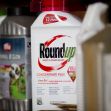GSK (GSK.L) and several other pharmaceutical companies, including Pfizer (PFE.N), Sanofi (SASY.PA), and Boehringer Ingelheim, are requesting permission from a Delaware court to appeal a ruling that allows over 70,000 lawsuits alleging that the heartburn drug Zantac causes cancer to proceed. The appeal, if granted by Judge Vivian Medinilla of the Delaware Superior Court, will be taken up directly by the Delaware Supreme Court. Should Judge Medinilla deny the petition, the companies plan to seek a hearing from the Supreme Court themselves.
The drugmakers argue that Judge Medinilla should have accepted their motion to prevent plaintiffs from presenting expert testimony claiming that Zantac causes cancer. Acceptance of this motion would have effectively halted all related lawsuits in Delaware, where the majority of Zantac cases are currently pending.
On Monday, GSK also announced that Eugenia Kasza, who had alleged that she developed breast cancer from taking Zantac, dropped her case shortly before it was set to go to trial. GSK clarified that there was no settlement involved. This would have been the second Zantac-related case to go to trial, following a recent victory for GSK and Boehringer Ingelheim in another case. Additionally, a separate case was dismissed by a judge just before the trial date on May 23.
Sanofi has already settled approximately 4,000 Zantac cases, and Pfizer reportedly settled more than 10,000 cases, according to the Financial Times.
Zantac, first approved in 1983, became a blockbuster drug by 1988, reaching over $1 billion in annual sales. Initially marketed by a predecessor of GSK, the drug was later sold to various companies over the years. In 2019, the sale of Zantac was halted by some manufacturers and pharmacies after the detection of NDMA, a known carcinogen, in certain pills. Tests indicated that Zantac's active ingredient, ranitidine, could degrade into NDMA over time or when exposed to heat.
The U.S. Food and Drug Administration (FDA) requested that Zantac be removed from the market in 2020. Despite mounting lawsuits, the drugmakers have consistently argued that there is no evidence linking Zantac to harmful levels of NDMA exposure.
The companies achieved a significant victory in 2022 when another judge dismissed around 50,000 similar lawsuits consolidated in federal court in Florida. However, some plaintiffs are appealing that ruling. The current legal proceedings in Delaware represent another crucial front in the ongoing legal battles over Zantac.






